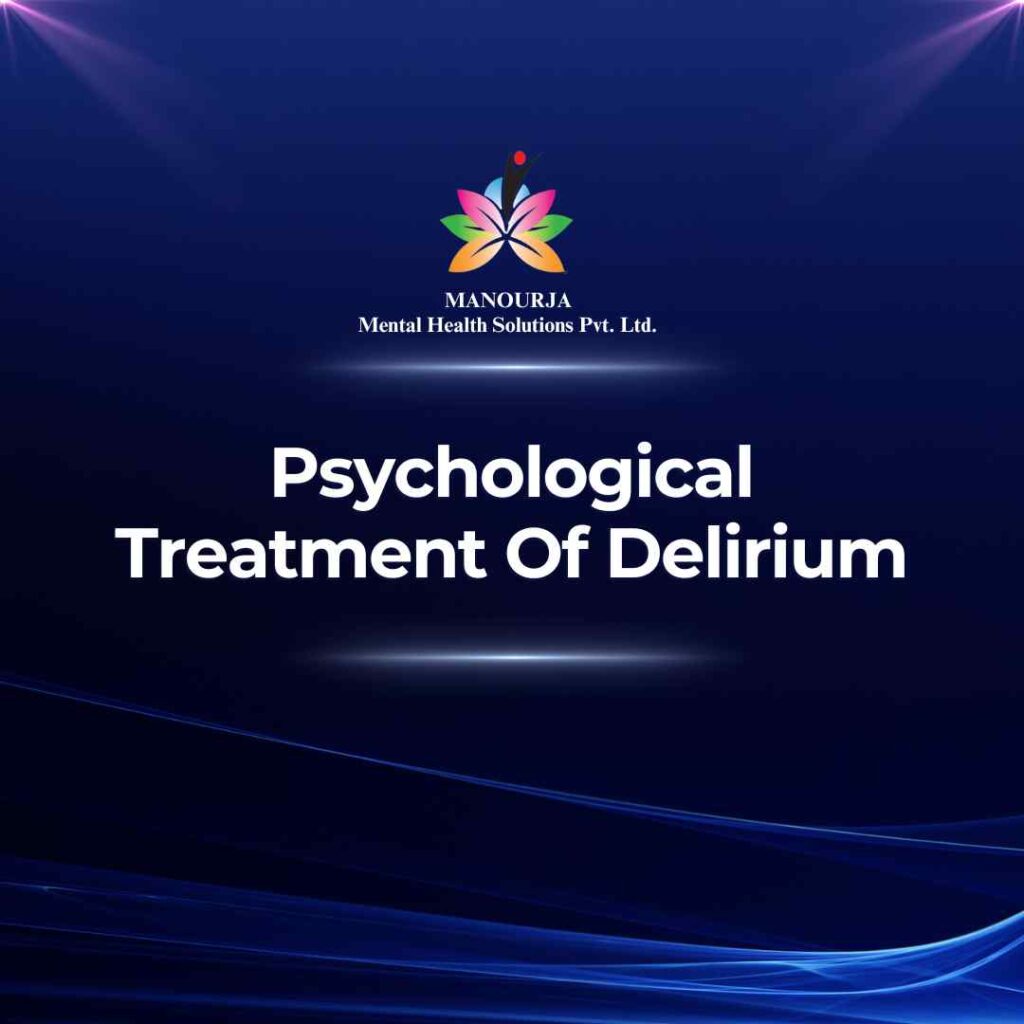Psychological Treatment of Delirium

Psychological treatment for delirium primarily focuses on managing symptoms, promoting comfort, and supporting cognitive function. While delirium often requires medical intervention, psychological approaches can complement medical care and enhance the individual’s well-being.
Here are some key components of psychological treatment for delirium:
- Reassurance and Orientation: Providing frequent reassurance and orientation to time, place, and person can help alleviate confusion and disorientation. Reassuring the individual about their surroundings and explaining the reason for their hospitalization or medical treatment in a clear and reassuring manner can help them feel more grounded.
- Validation and Empathy: Validating the individual’s feelings and experiences, even if they seem illogical or irrational, can help reduce distress. Showing empathy and understanding can provide emotional support and comfort during periods of confusion and agitation.
- Reality Orientation Therapy: Engaging the individual in reality orientation exercises helps reinforce awareness of their current circumstances. Using calendars, clocks, and other cues can help them maintain a sense of time and place. Engaging in conversations about familiar topics and encouraging participation in simple tasks can also promote cognitive engagement.
- Sensory Support: Creating a calm and soothing environment with minimal sensory stimulation can help reduce agitation and promote relaxation. Minimizing noise, providing soft lighting, and offering comfort items such as familiar objects or music can create a more comforting atmosphere.
- Communication Strategies: Using clear and simple language when communicating with the individual can help them understand and process information more effectively. Breaking down information into smaller, manageable segments and using nonverbal cues such as gestures and facial expressions can facilitate communication.
- Cognitive Stimulation: Engaging the individual in activities that stimulate cognitive function, such as puzzles, memory games, or storytelling, can help maintain cognitive abilities and promote mental engagement. Tailoring activities to the individual’s interests and abilities can enhance their participation and enjoyment.
- Emotional Support: Offering emotional support and validation can help the individual cope with feelings of fear, anxiety, or frustration. Providing opportunities for the individual to express their emotions in a safe and supportive environment can promote emotional well-being.
- Family and Caregiver Involvement: Involving family members and caregivers in the individual’s care and treatment plan can provide additional support and resources. Educating family members and caregivers about delirium and its management can help them better understand and support the individual’s needs.
- Follow-Up and Monitoring: Regular follow-up assessments to monitor the individual’s progress and adjust the treatment approach as needed are essential. Continuously reassessing the individual’s mental status, emotional well-being, and response to interventions ensures that their needs are being met effectively.
Overall, psychological treatment for delirium aims to promote comfort, reduce distress, and support cognitive function during a challenging and vulnerable time. Collaborative care involving healthcare professionals, family members, and caregivers is essential for providing comprehensive and effective support to individuals experiencing delirium.
At MANOURJA, we believe in the transformative power of counseling. Our experienced therapists offer a safe and supportive space where you can explore your thoughts, emotions, and challenges. Through personalized counselling sessions, we’ll work together to develop coping strategies, build resilience, and achieve lasting positive change. Discover the path to a healthier, happier you with MANOURJA counselling services.
MANOURJA Rehabilitation Services
At MANOURJA, we’re dedicated to helping you in rebuild your life, after difficult times. Our rehabilitation services focus on understanding what you need to move forward, whether you’re recovering from addiction, trauma, or any psychological – social challenges. We create personalized plans, that are all about helping you, regain your strength and find hope again. With a caring team by your side, you’ll have the support to make real progress and take steps toward a brighter, healthier future.
